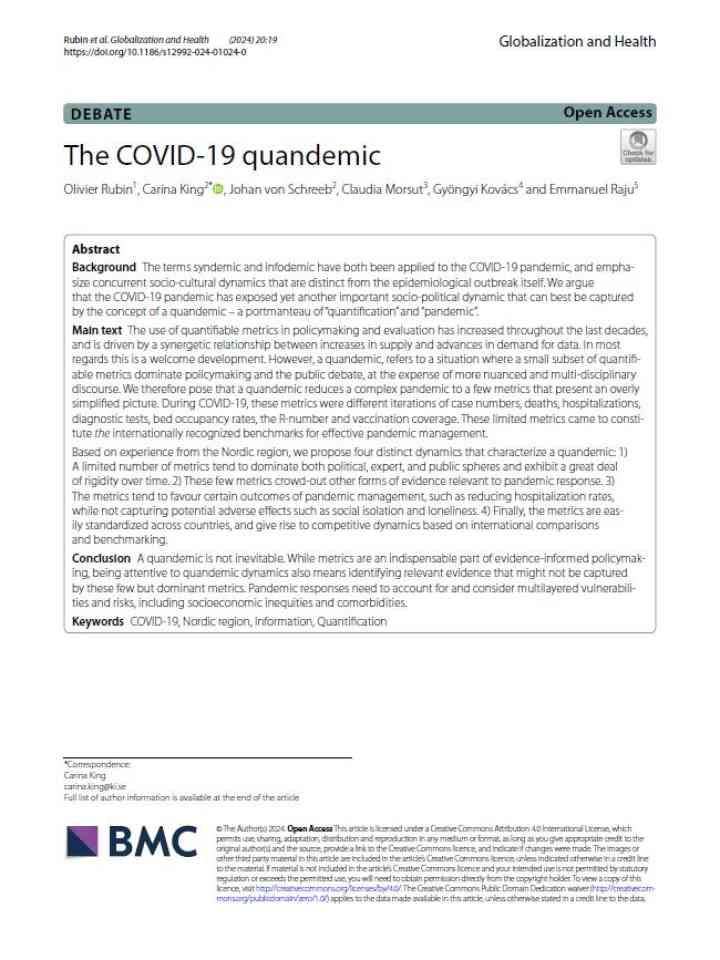The COVID-19 quandemic
This paper argues that the COVID-19 pandemic has exposed yet another important socio-political dynamic that can best be captured by the concept of a quandemic – a portmanteau of “quantification” and “pandemic”. The use of quantifiable metrics in policymaking and evaluation has increased throughout the last decades, and is driven by a synergetic relationship between increases in supply and advances in demand for data. In most regards this is a welcome development. However, a quandemic, refers to a situation where a small subset of quantifiable metrics dominate policymaking and the public debate, at the expense of more nuanced and multi-disciplinary discourse.
Based on experience from the Nordic region, the authors propose four distinct dynamics that characterize a quandemic:
- A limited number of metrics tend to dominate both political, expert, and public spheres and exhibit a great deal of rigidity over time.
- These few metrics crowd-out other forms of evidence relevant to pandemic response.
- The metrics tend to favour certain outcomes of pandemic management, such as reducing hospitalization rates, while not capturing potential adverse effects such as social isolation and loneliness.
- Finally, the metrics are easily standardized across countries, and give rise to competitive dynamics based on international comparisons and benchmarking.
Explore further
